 The University of California, San Francisco (UCSF) has a team of robots that fills prescriptions for its medical center. Orders are submitted electronically. The drugs are retrieved from a secure, sterile environment. The dosage is as exact as a computer is logical. Medications are packaged for each patient – even assembled into 12-hour packets for the day. It eliminates possible errors by both pharmacists and nurses. Read more
The University of California, San Francisco (UCSF) has a team of robots that fills prescriptions for its medical center. Orders are submitted electronically. The drugs are retrieved from a secure, sterile environment. The dosage is as exact as a computer is logical. Medications are packaged for each patient – even assembled into 12-hour packets for the day. It eliminates possible errors by both pharmacists and nurses. Read more
Baby RB, Baby Isaiah, Baby Joseph
 The current case in the spotlight is Baby Joseph Maraachli. He suffers from a “progressively deteriorating neurological condition” of unknown origin and is in a permanent vegetative state. He is 13 months old. A court in Ontario ruled that the health center treating Baby Joseph could remove the breathing tube keeping him alive. The parents have transferred the child to a hospital in St. Louis, where he will receive a tracheotomy. Read more
The current case in the spotlight is Baby Joseph Maraachli. He suffers from a “progressively deteriorating neurological condition” of unknown origin and is in a permanent vegetative state. He is 13 months old. A court in Ontario ruled that the health center treating Baby Joseph could remove the breathing tube keeping him alive. The parents have transferred the child to a hospital in St. Louis, where he will receive a tracheotomy. Read more
Never Let Me Go: Exploitation of the young by the old
 The lackeys of capitalism compete to become employee of the month, just as the donors of Never Let Me Go take a pride in their donations. In both cases, the system has indoctrinated them so successfully that they’ve ended up perfectly willing to accept their part in an apparently unalterable scheme of things. Read more
The lackeys of capitalism compete to become employee of the month, just as the donors of Never Let Me Go take a pride in their donations. In both cases, the system has indoctrinated them so successfully that they’ve ended up perfectly willing to accept their part in an apparently unalterable scheme of things. Read more
From MD to MBA: The business of primary care
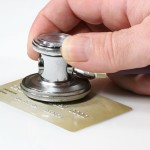 The public may not readily appreciate the adverse financial consequences of a health care system in which the majority of doctors become specialists. But it would understand the story of a primary care physician who chose to end her practice because she was undervalued, overworked, frustrated, and underpaid. Read more
The public may not readily appreciate the adverse financial consequences of a health care system in which the majority of doctors become specialists. But it would understand the story of a primary care physician who chose to end her practice because she was undervalued, overworked, frustrated, and underpaid. Read more
Even dictators need a facelift
 It’s not surprising then that Colonel Muammar Gaddafi of Libya would want to maintain a youthful appearance. His Brazilian plastic surgeon, Dr. Liacyr Ribeiro, has just released the details. Ribeiro – who has also performed cosmetic surgery on Italy’s Italian Prime Minister Silvio Berlusconi — told a Brazillian weekly that he operated on Gaddafi in 1995. Read more
It’s not surprising then that Colonel Muammar Gaddafi of Libya would want to maintain a youthful appearance. His Brazilian plastic surgeon, Dr. Liacyr Ribeiro, has just released the details. Ribeiro – who has also performed cosmetic surgery on Italy’s Italian Prime Minister Silvio Berlusconi — told a Brazillian weekly that he operated on Gaddafi in 1995. Read more
Daylight saving time and heart attacks
 1.6 billion people – almost a quarter of the world’s population – observe the biannual shifts between standard and daylight saving time. Does the loss of an hour’s sleep in the spring affect their health? According to a study published in The New England Journal of Medicine, there’s a statistically significant increase in the number of heart attacks (myocardial infarctions) in the week after we shift to daylight saving time. Read more
1.6 billion people – almost a quarter of the world’s population – observe the biannual shifts between standard and daylight saving time. Does the loss of an hour’s sleep in the spring affect their health? According to a study published in The New England Journal of Medicine, there’s a statistically significant increase in the number of heart attacks (myocardial infarctions) in the week after we shift to daylight saving time. Read more
JAMA announces new editor-in-chief
 JAMA is much more stodgy than NEJM, at least in my opinion. During the presidential election and then during the debate over health care reform, NEJM published timely commentaries on the issues and made them available online to non-subscribers. It continues to cover topics such as the legal challenges to the health care bill. Not only does JAMA give less space to these issues. Articles in JAMA are not available online without a subscription ($165 for 48 issues). Read more
JAMA is much more stodgy than NEJM, at least in my opinion. During the presidential election and then during the debate over health care reform, NEJM published timely commentaries on the issues and made them available online to non-subscribers. It continues to cover topics such as the legal challenges to the health care bill. Not only does JAMA give less space to these issues. Articles in JAMA are not available online without a subscription ($165 for 48 issues). Read more
The tipping point for motor car casualties
 From 1911 JAMA: An alarming increase in the number of street accidents from the recent development of motor traffic is shown by the report issued by the Highways Protection League. In 1905, thirty-five persons were killed and 1,557 injured by accidents due to motor traffic, while 118 were killed and 6,323 injured by horse traffic. In 1909, 163 persons were killed and 6,579 were injured by motor traffic, while 123 were killed and 5,589 were injured by horse traffic. Read more
From 1911 JAMA: An alarming increase in the number of street accidents from the recent development of motor traffic is shown by the report issued by the Highways Protection League. In 1905, thirty-five persons were killed and 1,557 injured by accidents due to motor traffic, while 118 were killed and 6,323 injured by horse traffic. In 1909, 163 persons were killed and 6,579 were injured by motor traffic, while 123 were killed and 5,589 were injured by horse traffic. Read more
History of patient modesty part 2: Convincing patients to disrobe
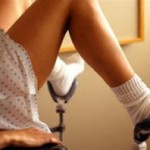 In part one of this post I explained how a new anatomical understanding of disease in the 19th century changed the practice of medicine. Prior to this insight, there was no need to expose the body to observation or to touch parts of the body that were normally clothed. The anatomical theory sent doctors on a search to discover what was happening inside the body. The new physical exam required much greater exposure and invasion of the body, a significant change for the patient experience. Read more
In part one of this post I explained how a new anatomical understanding of disease in the 19th century changed the practice of medicine. Prior to this insight, there was no need to expose the body to observation or to touch parts of the body that were normally clothed. The anatomical theory sent doctors on a search to discover what was happening inside the body. The new physical exam required much greater exposure and invasion of the body, a significant change for the patient experience. Read more
Why are there so many cosmetic surgeons?
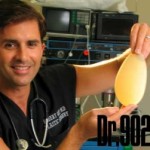 Well, one reason is that primary care physicians are being financially squeezed out of practicing their profession. There’s a good post at KevinMD on how physicians are responding, along with an acknowledgment of this sad truth in the comments. The post is called “Primary care physicians are rebelling against the system.” Read more
Well, one reason is that primary care physicians are being financially squeezed out of practicing their profession. There’s a good post at KevinMD on how physicians are responding, along with an acknowledgment of this sad truth in the comments. The post is called “Primary care physicians are rebelling against the system.” Read more
What the Internet does to the mind and self
 What we live in is not the age of the extended mind but the age of the inverted self. The things that have usually lived in the darker recesses or mad corners of our mind—sexual obsessions and conspiracy theories, paranoid fixations and fetishes—are now out there: you click once and you can read about the Kennedy autopsy or the Nazi salute or hog-tied Swedish flight attendants. But things that were once external and subject to the social rules of caution and embarrassment—above all, our interactions with other people—are now easily internalized, made to feel like mere workings of the id left on its own. Read more
What we live in is not the age of the extended mind but the age of the inverted self. The things that have usually lived in the darker recesses or mad corners of our mind—sexual obsessions and conspiracy theories, paranoid fixations and fetishes—are now out there: you click once and you can read about the Kennedy autopsy or the Nazi salute or hog-tied Swedish flight attendants. But things that were once external and subject to the social rules of caution and embarrassment—above all, our interactions with other people—are now easily internalized, made to feel like mere workings of the id left on its own. Read more
Links: Implants & cancer/Ageism & healthism/Psychiatry/Climate change/War/Inequality
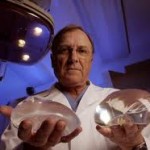 When Is Breast Cancer Not “Cancer”? When You’re Funded by Breast-Implant Makers (Bnet)
When Is Breast Cancer Not “Cancer”? When You’re Funded by Breast-Implant Makers (Bnet)
Plastic surgery trade groups advised doctors on what to tell women worried by new link between breast implants and anaplastic large cell lymphoma (ALCL). Say it’s a “condition,” not cancer.
It Gets Worse (NYT)
Robert Crawford’s healthism is alive and well. Review of Susan Jacoby’s Never Say Die: The Myth and Marketing of the New Old Age. Jacoby sees a new ageism that doesn’t just stigmatize old people for their years, but blames them for physical ills that no lifestyle adjustments or medicine could have prevented. Read more
It’s better not to have children
 Children rarely make a net contribution to a parent’s (self-assessed) levels of happiness (and remember, people tend to overestimate their happiness levels). In anonymous surveys, most parents report regretting having children. Seventy percent of people would not have had children if they knew what it would be like Read more
Children rarely make a net contribution to a parent’s (self-assessed) levels of happiness (and remember, people tend to overestimate their happiness levels). In anonymous surveys, most parents report regretting having children. Seventy percent of people would not have had children if they knew what it would be like Read more
Cosmetic surgery for your pet
 My vet said my dog wont [sic] know that he’s missing anything. Is that true?
My vet said my dog wont [sic] know that he’s missing anything. Is that true?
People know their beloved pet. Their pet can tell them when they are hungry, want to play, don’t feel well, hide when approaching the vet’s office or will get excited when driving by or going to the park – why wouldn’t the pet know a familiar body part is missing? Would he know if his foot was cut off? Of course he would – its [sic] only common sense.
Read more
Links: Vampire facelifts/Happiness/Neuroenhancers/Climate change/…
 ‘Vampire Face-Lifts’: Smooth at First Bite (NYT)
‘Vampire Face-Lifts’: Smooth at First Bite (NYT)
Plumping out nasiolabial folds with your own blood platelets. Not tested. Not FDA approved. “This is another gimmick that people are using to make themselves stand out on the Internet in a real dog-eat-dog part of medicine.”
The Corporate Pursuit of Happiness (Fast Company)
Stanford business school teaches students the virtues of marketing products with the promise of happiness. Happiness is just “another commodity deployed to sell something.”
Read more
History of patient modesty part 1: How bodily exposure went from unacceptable to required
 The need to reveal private and intimate parts of our bodies is a routine occurrence in medical practice today. Though it may offend our modesty, we take it for granted that the embarrassing moments of a colonoscopy, a Pap test, or a prostate exam are necessary for our health. Has it always been so? Have doctors always expected patients to disrobe? Have young male technicians always exposed the chests of female patients in need of a routine EKG? Have patients always been willing to allow doctors and their staff to view parts of the body normally seen by only the most intimate of partners? The answer is a resounding no. Read more
The need to reveal private and intimate parts of our bodies is a routine occurrence in medical practice today. Though it may offend our modesty, we take it for granted that the embarrassing moments of a colonoscopy, a Pap test, or a prostate exam are necessary for our health. Has it always been so? Have doctors always expected patients to disrobe? Have young male technicians always exposed the chests of female patients in need of a routine EKG? Have patients always been willing to allow doctors and their staff to view parts of the body normally seen by only the most intimate of partners? The answer is a resounding no. Read more
The new economic reality
 In a recent internal debate, he said, one of his senior colleagues had argued that the hollowing-out of the American middle class didn’t really matter. “His point was that if the transformation of the world economy lifts four people in China and India out of poverty and into the middle class, and meanwhile means one American drops out of the middle class, that’s not such a bad trade,” the CEO recalled. Read more
In a recent internal debate, he said, one of his senior colleagues had argued that the hollowing-out of the American middle class didn’t really matter. “His point was that if the transformation of the world economy lifts four people in China and India out of poverty and into the middle class, and meanwhile means one American drops out of the middle class, that’s not such a bad trade,” the CEO recalled. Read more
Links: Cosmetic surgery/Sleep/Aging/Health care greed/…
 Girlguiding UK urges teenage girls to think twice about cosmetic surgery (24dash)
Girlguiding UK urges teenage girls to think twice about cosmetic surgery (24dash)
UK national survey finds half of women age 16-21 would consider cosmetic surgery. More than one in 10 age 11-16 would think about cosmetic surgery to change their looks. Almost half think the pressure to look attractive is the most negative part of being female.
Culture of greed upsets attempts at health care reform (Boston Globe)
No kidding. Blue Cross CEO gets $8.6 million for leaving the company. “I am stunned by the arrogance of Blue Cross Blue Shield and the entire health insurance industry to allow this type of transfer of income from the working class to the wealthy. Read more
The duty to be happy
 By the duty to be happy, I thus refer to the ideology peculiar to the second half of the twentieth century that urges us to evaluate everything in terms of pleasure and displeasure, a summons to a euphoria that makes those who do not respond to it ashamed or uneasy. A dual postulate: on the one hand, we have to make the most of our lives; on the other, we have to be sorry and punish ourselves if we don’t succeed in doing so. This is a perversion of a very beautiful idea: that everyone has a right to control his own destiny and to improve his life. How did a liberating principle of the enlightenment, the right to happiness, get transformed into a dogma, a collective catechism? Read more
By the duty to be happy, I thus refer to the ideology peculiar to the second half of the twentieth century that urges us to evaluate everything in terms of pleasure and displeasure, a summons to a euphoria that makes those who do not respond to it ashamed or uneasy. A dual postulate: on the one hand, we have to make the most of our lives; on the other, we have to be sorry and punish ourselves if we don’t succeed in doing so. This is a perversion of a very beautiful idea: that everyone has a right to control his own destiny and to improve his life. How did a liberating principle of the enlightenment, the right to happiness, get transformed into a dogma, a collective catechism? Read more
Exploiting vanity for a good cause
 [N]ew anti-drug campaign may succeed where others have failed, grabbing teens’ attentions by appealing to their vanity. “The thinking is that this will give kids a tangible image of what can happen if they get involved in using hard drugs,” [Deputy Bret] King says. “We did want to appeal to their sense of vanity. It’s less abstract than telling someone they’ll get lung cancer many years down the line. This is something you can actually see right now.” Read more
[N]ew anti-drug campaign may succeed where others have failed, grabbing teens’ attentions by appealing to their vanity. “The thinking is that this will give kids a tangible image of what can happen if they get involved in using hard drugs,” [Deputy Bret] King says. “We did want to appeal to their sense of vanity. It’s less abstract than telling someone they’ll get lung cancer many years down the line. This is something you can actually see right now.” Read more
Links: Dogs help children read/Becoming an MD/Overdiagnosis/Misdiagnosis/Patient modesty/An MD’s compassion
 The dogs who listen to children reading (Guardian)
The dogs who listen to children reading (Guardian)
“Listening dog” encourages children to read aloud. “It helps with their self-esteem in reading out loud because he is non-judgmental. He doesn’t judge them and he doesn’t laugh at them.” Greyhounds are the dog of choice. Adopt a greyhound website.
18 Stethoscopes, 1 Heart Murmur and Many Missed Connections (NYT)
A woman (journalist/author) with a clearly audible mitral valve click volunteers to let second year med students listen. Interesting observations on doctor/patient relationship, learning to be a doctor. Read more
The complex signaling function of hair
 In popular culture, to have white skin and gray hair is to be old (unemployable and unattractive) or menopausal (unproductive and unsexual). An attempt to retain their hair color (natural or chosen) is, for certain women, an attempt to retain a currency of employability, utility and desirability. Read more
In popular culture, to have white skin and gray hair is to be old (unemployable and unattractive) or menopausal (unproductive and unsexual). An attempt to retain their hair color (natural or chosen) is, for certain women, an attempt to retain a currency of employability, utility and desirability. Read more
Science is not about the Truth
 The public has a distorted view of science, because children are taught in school that science is a collection of firmly established truths. In fact, science is not a collection of truths. It is a continuing exploration of mysteries. Read more
The public has a distorted view of science, because children are taught in school that science is a collection of firmly established truths. In fact, science is not a collection of truths. It is a continuing exploration of mysteries. Read more
Obama supports Wyden-Brown bill
 On the PBS Newshour last night, Judy Woodruff interviewed first Kathleen Sibelius and then Orrin Hatch on the issue (Sibelius being the Secretary of Health And Human Services (HHS) and Hatch the conservative Republican senator from Utah). Woodruff repeatedly tried to confront Hatch’s opposition to the proposal. She would cite a state governor who wanted the flexibility of the 2014 waiver option — for example, someone who thought his state could do better than the federal plan if it offered a single-payer system – only to have Hatch repeat, over and over, that the states can’t afford to implement health care reform, so there’s no point in talking about it. It’s all “bull corn.” Read more
On the PBS Newshour last night, Judy Woodruff interviewed first Kathleen Sibelius and then Orrin Hatch on the issue (Sibelius being the Secretary of Health And Human Services (HHS) and Hatch the conservative Republican senator from Utah). Woodruff repeatedly tried to confront Hatch’s opposition to the proposal. She would cite a state governor who wanted the flexibility of the 2014 waiver option — for example, someone who thought his state could do better than the federal plan if it offered a single-payer system – only to have Hatch repeat, over and over, that the states can’t afford to implement health care reform, so there’s no point in talking about it. It’s all “bull corn.” Read more
Imagine a future without cosmetic surgery
 A less pithy title – and what I really mean – would be “Imagine a future where aesthetic cosmetic surgery wasn’t motivated by the images of celebrities/advertising/porn and by the dissatisfaction with normal bodies that these images create.”
A less pithy title – and what I really mean – would be “Imagine a future where aesthetic cosmetic surgery wasn’t motivated by the images of celebrities/advertising/porn and by the dissatisfaction with normal bodies that these images create.”
In the concluding chapter of her new book, American Plastic: Boob Jobs, Credit Cards, and the Quest for Perfection, Laurie Essig suggests we might try creating and joining reality-check groups before going under the knife. We could weigh our decision, benefit from the input of friends, then relentlessly pursue “perfect beauty at any cost” if we wished. Read more
Links: Birthing your own grandchild/Welch’s Overdiagnosis/Al Qaeda/Cats/Polar bears
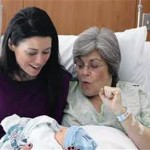 61-year-old woman gives birth to her own grandchild, and so what? (Practical Ethics)
61-year-old woman gives birth to her own grandchild, and so what? (Practical Ethics)
The news is that it’s not news. Euthanasia, divorce, same sex marriage, in vitro fertilization — the common perception of these practices has changed radically in the last 30 years. Comments from Italian bioethicist.
Creeping sickness: Our epidemic of diagnosis (New Scientist)
Review of H. Gilbert Welch’s new book, Overdiagnosed: Making People Sick in the Pursuit of Health (just got my copy). Today people have pre-diseases: pre-diabetes, pre-hypertension, pre-hyperlipidemia, pre-osteoporosis. Healthy people with no symptoms are urged to seek treatment. Read more
Decisions about CPR
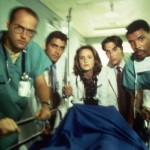 Thaddeus Pope quotes this sentence from a 1988 letter to the editor of The New England Journal of Medicine.
Thaddeus Pope quotes this sentence from a 1988 letter to the editor of The New England Journal of Medicine.
“It seems we have lost sight of the difference between patients who die because their hearts stop and patients whose hearts stop because they are dying.”
Today we no longer stop to make that distinction. Read more
The unavoidable and burdensome responsibility to be happy
 Kristina describes Victoria as “Possibly the most annoyingly loud, optimistic, cheerful person you will ever encounter. With an incredibly high-pitched, overly exaggerated Southern accent and a specialty in church music, she is the poster child for America.” Fortunately, I missed the episode of American Idol on which Victoria appeared and was eliminated. Read more
Kristina describes Victoria as “Possibly the most annoyingly loud, optimistic, cheerful person you will ever encounter. With an incredibly high-pitched, overly exaggerated Southern accent and a specialty in church music, she is the poster child for America.” Fortunately, I missed the episode of American Idol on which Victoria appeared and was eliminated. Read more
Sex, lies, and pharmaceuticals
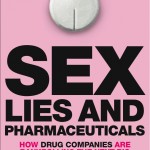 Most people experience times when as much as it’s blindingly obvious a problem is not theirs alone, it’s up to them alone to fix it – and a pill is often the quickest or only means.
Most people experience times when as much as it’s blindingly obvious a problem is not theirs alone, it’s up to them alone to fix it – and a pill is often the quickest or only means.
That’s exactly what Margaret Thatcher and Ronald Reagan wanted us to believe. “There’s no such thing as society.” Unfortunately, many medical distorders do have social, not biological causes. Like poverty.
Read more
Out of Practice: The demise of the primary care practitioner
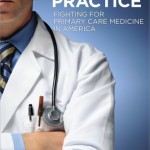 [T]he government and private insurers had begun a concerted effort to contain the escalating cost of health care by fiat. The kindly family doctor was diminished, downgraded, and de-professionalized to a “provider,” a bland descriptor on a clerk’s requisition form. Even worse, New York State’s Medicaid, insuring the indigent, classified me as a “vendor,” a term which sent me into orbit then, and which today still rankles. Hemmed in by profession-specific price controls, reams of restrictive regulations, heavy-handed threats of federal penalties and expulsion from Medicare participation for suspected infractions, I became disheartened. Read more
[T]he government and private insurers had begun a concerted effort to contain the escalating cost of health care by fiat. The kindly family doctor was diminished, downgraded, and de-professionalized to a “provider,” a bland descriptor on a clerk’s requisition form. Even worse, New York State’s Medicaid, insuring the indigent, classified me as a “vendor,” a term which sent me into orbit then, and which today still rankles. Hemmed in by profession-specific price controls, reams of restrictive regulations, heavy-handed threats of federal penalties and expulsion from Medicare participation for suspected infractions, I became disheartened. Read more

